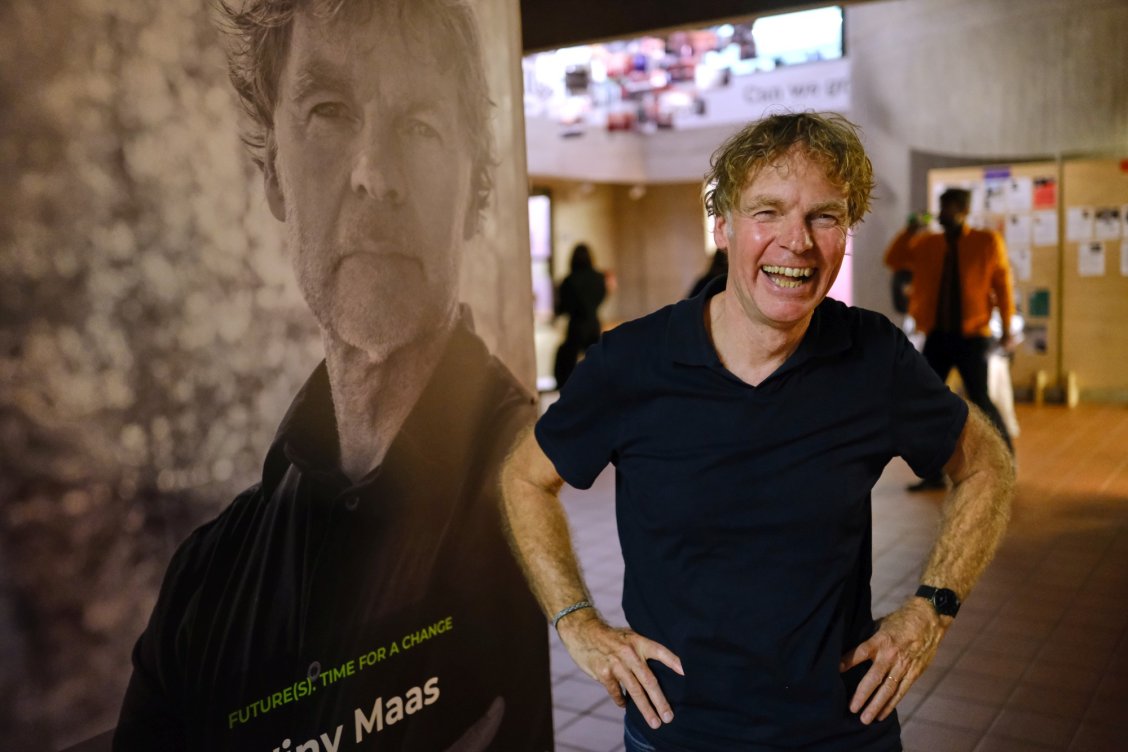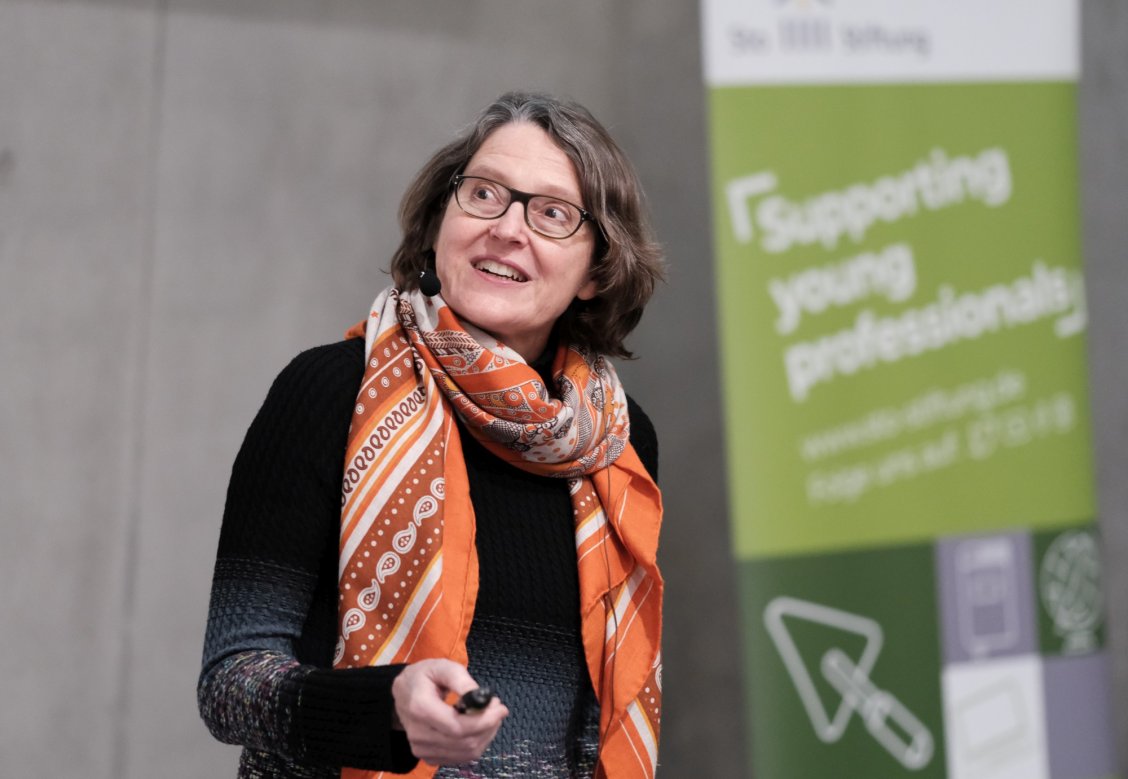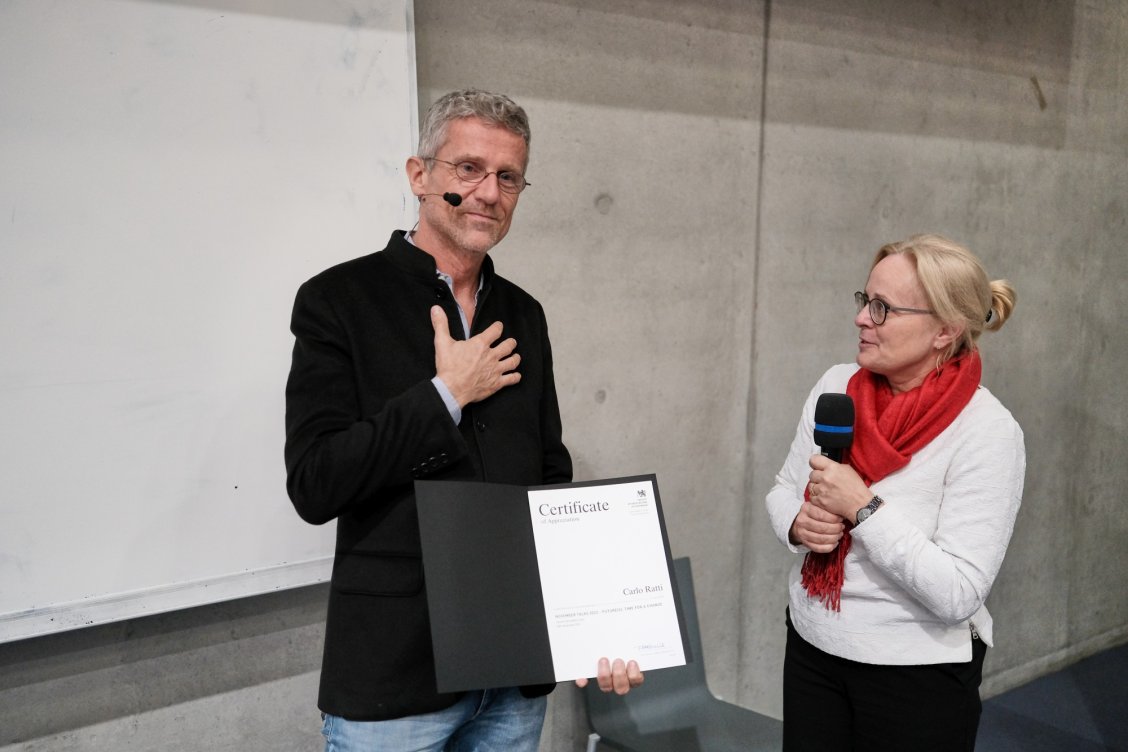Back to the future. November Talks 2022 guests on better urban design for all
13/1/2023

The subtitle "Time For a Change" expresses the need to rethink the way society responds to accelerating climate change. This year's invitees are Dutch architect and professor at Delft University of Technology Winy Maas, French urban planner Alice Cabaret, American architect Karen Cook and Carlo Ratti, professor at MIT.
The series opened in a packed Kotěra lecture hall with a lecture by Winy Maas, architect, landscape and urban designer, co-founder of the MVRDV studio. In the first part, he presented various architectural designs for European cities, including recent competitions for the design of the Vltava Philharmonic Hall in Prague and the Moravian Jewish Museum Mehrin in Brno. In the second part, he presented the platform The Why Factory, which he founded at TU Delft and whose concept of work he is currently developing in the studio of a visiting professor at the FA CTU. Students work collectively to explore the possibilities of future cities that can respond to various crises such as climate change or housing shortages.

The second guest was Alice Cabaret, a French urbanist focusing on urban transformations, founder of the creative agency The Street Society and the [S]CITY initiative exploring the connection between neuroscience and urbanism. Today's cities are resource-intensive, inefficient in their use of space and infrastructure, as well as in creating a safe and healthy environment for their residents. According to Alice Cabaret, cities can play an important role in addressing the climate crisis. This is the challenge for architects and urban planners – to design more resilient, greener and more livable cities. Using concrete examples, Alice Cabaret presented how she and her team work on adaptations of buildings and public spaces, research and small-scale interventions. The key, she says, is to bring life to underused places.

The third lecture was hosted by American-British architect Karen Cook, who is connected with the Czech Republic through her previous work in Prague's Karlín, where she participated in the Danube House and Nile House projects. She presented a cross-section of her work to date and looked in detail at the process of designing and creating the 22 Bishopsgate office building in London, completed two years ago. During the design process, the architectural team was faced with the challenge of integrating 12,000 workers into the space of one building in a way that they would feel comfortable and happy to be inside. The assignment gave rise to the concept of the "Vertical Village". The building provides its inhabitants with good working conditions as well as spaces for meeting and leisure. The design had to cope with the setting of a tall building in the urban fabric in close proximity to St. Paul's Cathedral.

The lecture series was concluded by Carlo Ratti, Italian architect and engineer, founding partner of Carlo Ratti Associati and head of the Senseable City Lab at MIT. Our ways of understanding cities are changing radically, as are the tools we use to design them. In his lecture "The City of Tomorrow", he presented the work of the Senseable City Lab – a multidisciplinary space where architects, designers, planners, engineers and sociologists meet. Together they develop and put into practice new tools for understanding cities, such as the use of data from mobile phones and social networks. For example, a model working with data on the use of taxis in New York could reduce the number of taxis by 40%, while a fleet of autonomous vessels could make it easier for Amsterdam to transport people, supplies or waste while collecting data about the city.
The November Talks series has been supported by the Sto Foundation since 2006 and is held at selected European schools of architecture. Recordings of this year's and previous years' lectures can be viewed on the Faculty's YouTube.
